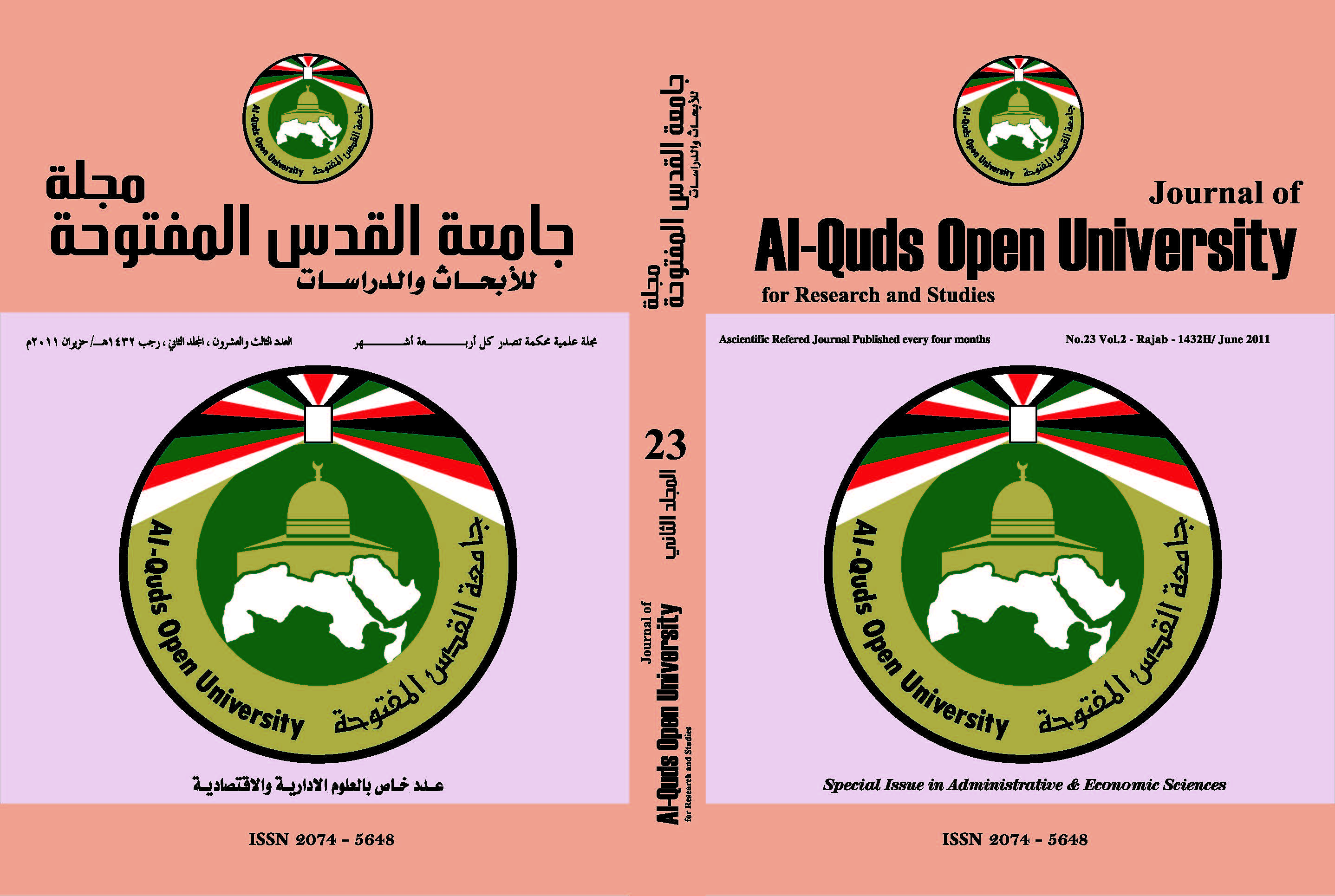The Role of Administrative Innovation in the Development of a Public Education Strategy (Education for a New Era) in the State of Qatar from the Perspective of the Employees at the Supreme Education Council
Keywords:
The Role of Administrative Innovation, Development, Public Education Strategy, Education for a New Era, State of Qatar, Employees, Supreme Education CouncilAbstract
This research aimed to acknowledge the role of administrative innovation
in the development of the general education strategy (Education for a New Era)
in the state of Qatar, which is carried out by the Supreme Education Council
– the highest authority responsible for the education sector. Accordingly, the
research is important because it reveals the different aspects affecting the
innovation process viewed by different employees in this sector. Moreover,
the research is important because it determines the value of administrative
innovation and its role in developing the sector as a whole; and how it is used
to overcome the current obstacles that hinder the achievement of the desired
results effectively and efficiently.
Therefore, the researcher assumed that there is a statistical relation
among different employees in viewing the positive and negative aspects of the
role of administrative innovation in the general education initiative according
to their personal and occupational differences. Based on this, the researcher
used the descriptive analytical methodology through a social survey approach
to obtain the results.
The most significant results obtained from this research proved that
administrative innovation exists to a certain extent in the Supreme Education
Council in the state of Qatar. However, there are different ways to increase
the role of administrative innovation in the council such as strategic planning
that emphasizes the vision, and mission.
The researcher recommended that we need human resource development
and focus on the preparation of administrative leaders at the level of the
Supreme Education Council in general and independent schools in particular,
and to promote the importance of creativity by creating the appropriate
regulatory environment which contributes to the development of individual
performance and developing creative abilities and tendencies by strengthening
their participation in decision- making.
Downloads
Published
How to Cite
Issue
Section
License
- The editorial board confirms its commitment to the intellectual property rights
- Researchers also have to commit to the intellectual property rights.
- The research copyrights and publication are owned by the Journal once the researcher is notified about the approval of the paper. The scientific materials published or approved for publishing in the Journal should not be republished unless a written acknowledgment is obtained by the Deanship of Scientific Research.
- Research papers should not be published or republished unless a written acknowledgement is obtained from the Deanship of Scientific Research.
- The researcher has the right to accredit the research to himself, and to place his name on all the copies, editions and volumes published.
- The author has the right to request the accreditation of the published papers to himself.













_2.png)
_.png)
_2.png)
_1.png)
_.png)

